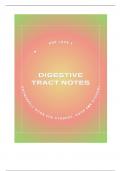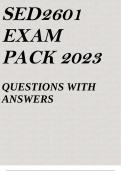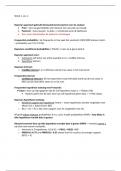Summarise of important grammar topics:
1. Conditional sentences:
a) usage for “if” und “when”:
if when
- Dinge, die möglicherweise passieren - Dinge, die mit Sicherheit passieren
werden werden
b) Zero conditional:
- Beschreibung einfacher Ursachen und 1) If you use that door, it sets off an alarm.
Wirkungen Falls du die Tür nutzt, löst der Alarm aus.
2) If you mix blue with yellow, you get green.
Wenn du blau mit gelb mischst, erhältst du
grün
c) First conditional:
- Beschreibung von erfüllbaren Situationen
1) If we go to the presentation, we’ll learn a lot of interesting news.
Present Future
Wenn du zu der Präsentation gehst, wirst du viele interessante Neuigkeiten
lernen.
2) If you can’t meet our deadline, we’ll have to find another supplier.
Modal verb Future
Wenn Sie nicht unsere Frist einhalten können, werden wir einen anderen Lieferer
finden müssen.
3) I’ll lend you my car provided/as long as you fil it up with petrol
Future solange/sofern, Present
um Bedingung zu
verstärken
Ich werde dir mein Auto leihen, sofern/solange du es mit Benzin tankst.
4) If we finish on time, we can catch the flight.
Present Modal verb
Fall wir rechtzeitig fertig sind, können wir den Flug erwischen.
,d) Second Conditional:
- Beschreibung eines Ereignisses, das möglicherweise eintritt
1) If the post were more reliable, we wouldn’t have to depend on couriers.
Past Modal verb
Wenn die Post zuverlässiger wäre, würden wir nicht von den Kurieren abhängig
sein müssen.
2) If he went there, he would meet his sister.
Past Modal verb
Wenn er hinginge, würde er seine Schwester treffen.
e) Third Conditional:
- Beschreibung von nicht realisierbaren Situationen
1) If he had gone there, he would have met her.
Past Perfect Conditional II
Wenn er hingegangen wäre, hätte er sie getroffen.
2) If he hadn’t made the phone call, he wouldn’t have heard the news.
Past Perfect Conditional II
Wenn er nicht das Telefongespräch hätte er nicht von den Neuigkeiten erfahren.
gemacht hätte,
2. Passive Voice:
Bildung: Form von to be + past participle (+ by agent)
Present: is/are + p.p.
Past: was/were + p.p. (by agent)
Future: will be + p.p.
a) transformation Active Passive:
Aus dem Objekt des Aktivsatzes wird das Subjekt des Passivsatzes und aus dem Subjekt
des Aktivsatzes wird das Objekt des Passivsatzes!!!
Active Passive
James Watt invented the steam machine. The steam machine was invented by
James Watt.
Subjekt Prädikat Objekt
Subjekt Prädikat Objekt
, Zeitform Aktiv Passiv
Präsens I bake a cake. A cake is baked (by me)
- Verlaufsform I am baking a cake. A cake is being baked.
Present Perfect - I have baked a cake. A cake has been baked.
Verlaufsform I have been baking a cake. (nicht gebräuchlich)
Präterium I baked a cake. A cake was baked.
- Verlaufsform I was baking a cake. A cake was being baked.
Plusquamperfekt I had baked a cake. A cake had been baked.
- Verlaufsform I had been baking a cake. (nicht gebräuchlich)
Futur (going to) I am going to bake a cake. A cake is going to be baked.
Futur (will) I will bake a cake. A cake will be baked.
- Verlaufsform I will be baking a cake. (nicht gebräuchlich)
Futur II I will have baked a cake. A cake will have been baked.
- Verlaufsform I will have been baking a cake. (nicht gebräuchlich)
b) Usage of Passive and Active:
Active Passive
- vordergründige Betonung der han- - vordergründige Betonung der Handlung
delnden Person - Anwendung bei unbekannten Urheber
- Anwendung bei bekannten Urheber einer Handlung (someone, people, they)
einer Handlung
Bsp.: Someone has stolen my pocket.
My pocket has been stolen.
3. Adverbs:
a) comparison of adverb and adjective:
adverb adjective
- Ergänzungen zu Verben, Adjektiven, - Beschreibung der Art und Eigenschaften
anderen Adverbien oder auch ganzen einer Sache bzw. eines Menschen
Sätzen nähere Bestimmung von Substantiven
oder Pronomen
Beispiele: Beispiele:
You did it perfectly. You did a perfect job.
(Du hast es tadellos gemacht.) (Du hast eine tadellose Arbeit geleistet.)
He sings very well. He is a very good actor
(Er singt sehr gut.) (Er ist ein sehr guter Schauspieler.)
b) Bildung des Adverbs:
Grundsatz: Anhängen von -ly an das Adjektiv
Adjektiv Adverb
cheerful cheerfully fröhlich
sad sadly traurig
mistaken mistakenly irrtümlich
1. Conditional sentences:
a) usage for “if” und “when”:
if when
- Dinge, die möglicherweise passieren - Dinge, die mit Sicherheit passieren
werden werden
b) Zero conditional:
- Beschreibung einfacher Ursachen und 1) If you use that door, it sets off an alarm.
Wirkungen Falls du die Tür nutzt, löst der Alarm aus.
2) If you mix blue with yellow, you get green.
Wenn du blau mit gelb mischst, erhältst du
grün
c) First conditional:
- Beschreibung von erfüllbaren Situationen
1) If we go to the presentation, we’ll learn a lot of interesting news.
Present Future
Wenn du zu der Präsentation gehst, wirst du viele interessante Neuigkeiten
lernen.
2) If you can’t meet our deadline, we’ll have to find another supplier.
Modal verb Future
Wenn Sie nicht unsere Frist einhalten können, werden wir einen anderen Lieferer
finden müssen.
3) I’ll lend you my car provided/as long as you fil it up with petrol
Future solange/sofern, Present
um Bedingung zu
verstärken
Ich werde dir mein Auto leihen, sofern/solange du es mit Benzin tankst.
4) If we finish on time, we can catch the flight.
Present Modal verb
Fall wir rechtzeitig fertig sind, können wir den Flug erwischen.
,d) Second Conditional:
- Beschreibung eines Ereignisses, das möglicherweise eintritt
1) If the post were more reliable, we wouldn’t have to depend on couriers.
Past Modal verb
Wenn die Post zuverlässiger wäre, würden wir nicht von den Kurieren abhängig
sein müssen.
2) If he went there, he would meet his sister.
Past Modal verb
Wenn er hinginge, würde er seine Schwester treffen.
e) Third Conditional:
- Beschreibung von nicht realisierbaren Situationen
1) If he had gone there, he would have met her.
Past Perfect Conditional II
Wenn er hingegangen wäre, hätte er sie getroffen.
2) If he hadn’t made the phone call, he wouldn’t have heard the news.
Past Perfect Conditional II
Wenn er nicht das Telefongespräch hätte er nicht von den Neuigkeiten erfahren.
gemacht hätte,
2. Passive Voice:
Bildung: Form von to be + past participle (+ by agent)
Present: is/are + p.p.
Past: was/were + p.p. (by agent)
Future: will be + p.p.
a) transformation Active Passive:
Aus dem Objekt des Aktivsatzes wird das Subjekt des Passivsatzes und aus dem Subjekt
des Aktivsatzes wird das Objekt des Passivsatzes!!!
Active Passive
James Watt invented the steam machine. The steam machine was invented by
James Watt.
Subjekt Prädikat Objekt
Subjekt Prädikat Objekt
, Zeitform Aktiv Passiv
Präsens I bake a cake. A cake is baked (by me)
- Verlaufsform I am baking a cake. A cake is being baked.
Present Perfect - I have baked a cake. A cake has been baked.
Verlaufsform I have been baking a cake. (nicht gebräuchlich)
Präterium I baked a cake. A cake was baked.
- Verlaufsform I was baking a cake. A cake was being baked.
Plusquamperfekt I had baked a cake. A cake had been baked.
- Verlaufsform I had been baking a cake. (nicht gebräuchlich)
Futur (going to) I am going to bake a cake. A cake is going to be baked.
Futur (will) I will bake a cake. A cake will be baked.
- Verlaufsform I will be baking a cake. (nicht gebräuchlich)
Futur II I will have baked a cake. A cake will have been baked.
- Verlaufsform I will have been baking a cake. (nicht gebräuchlich)
b) Usage of Passive and Active:
Active Passive
- vordergründige Betonung der han- - vordergründige Betonung der Handlung
delnden Person - Anwendung bei unbekannten Urheber
- Anwendung bei bekannten Urheber einer Handlung (someone, people, they)
einer Handlung
Bsp.: Someone has stolen my pocket.
My pocket has been stolen.
3. Adverbs:
a) comparison of adverb and adjective:
adverb adjective
- Ergänzungen zu Verben, Adjektiven, - Beschreibung der Art und Eigenschaften
anderen Adverbien oder auch ganzen einer Sache bzw. eines Menschen
Sätzen nähere Bestimmung von Substantiven
oder Pronomen
Beispiele: Beispiele:
You did it perfectly. You did a perfect job.
(Du hast es tadellos gemacht.) (Du hast eine tadellose Arbeit geleistet.)
He sings very well. He is a very good actor
(Er singt sehr gut.) (Er ist ein sehr guter Schauspieler.)
b) Bildung des Adverbs:
Grundsatz: Anhängen von -ly an das Adjektiv
Adjektiv Adverb
cheerful cheerfully fröhlich
sad sadly traurig
mistaken mistakenly irrtümlich







